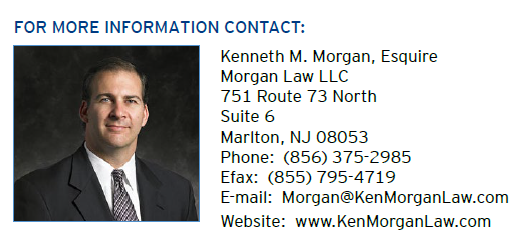 Let’s look at 10 common commercial leasing mistakes and how to avoid them. Commercial leasing transactions are among the longest term contracts parties will ever enter into, yet many often take the cavalier attitude that “it is just a lease.” That lack of focus and attention to detail often leads to mistakes that can haunt the parties for years and waste valuable time and money.
Let’s look at 10 common commercial leasing mistakes and how to avoid them. Commercial leasing transactions are among the longest term contracts parties will ever enter into, yet many often take the cavalier attitude that “it is just a lease.” That lack of focus and attention to detail often leads to mistakes that can haunt the parties for years and waste valuable time and money.
Download Printable Article (PDF) >>>
Ten Common Commercial Leasing Mistakes and Suggested Tips:
1. Incorrect Names of the Parties
The parties’ names must be clearly and precisely listed but have errors a shocking number of times, as either the landlord’s name, the tenant’s name or both are often incorrect. These mistakes cast potential doubts regarding the validity and enforceability of the lease agreement and raise possible defenses. If you end up in such a situation, a lease amendment should be signed that expressly ratifies all of the lease terms and acknowledges the prior error(s). Avoid such situations by verifying the parties’ names by searching New Jersey and Pennsylvania corporate websites, which can be completed within a minute free of charge. Obtaining copies of filed certificates of incorporation, certifications of formation and the like will also help verify that the parties’ names are correctly shown. Further, a short form good standing certificate or a subsistence certificate can be obtained online in a few minutes at a nominal cost.
2. Parties No Longer Exist
Entities to lease transactions (whether landlord or tenant or their successors or assigns) may be dissolved. Thus, the parties should conduct basic due diligence and verify the facts on an ongoing basis. Obtaining good standing or subsistence certificates could be helpful in this regard. If, for example, a good standing certificate indicates that annual reports and related fees are overdue, that party should be compelled to file such reports and pay such fees to avoid being involuntarily suspended by the State. If a party has already been dissolved voluntarily or involuntarily, they should be required to get their “organizational house” in order, and then lease instruments can be signed.
3. Your Lease is Actually a Sublease
Tenants should consider obtaining title searches to verify ownership of the property by the landlord indicated in the lease documents, or at the very least by asking for copies of deeds, tax records and title polices from their landlords. Otherwise, a tenant may not know that its lease is actually a sublease, which is more common than one might think. If you are a subtenant and not a tenant, your landlord cannot grant to you any rights that do not exist under the master lease and, therefore, you cannot understand your rights unless and until you review the applicable master lease.
4. Authorized Parties Do Not Sign or Incorrectly State their Title
Only an individual authorized to bind an entity should be signing documents on its behalf, and the signer’s name and title should be clearly shown. Such basics are commonly disregarded and the parties simply assume that whoever has signed the lease is an authorized signer. You should consider requesting copies of Operating Agreements, Shareholder’s Agreements and applicable consents and resolutions to confirm that an authorized person is signing. The lease documents should also explicitly represent that the person signing this lease document on behalf of each party is duly authorized to bind such party. If an agent is signing on behalf of the landlord, ask for evidence of authority in the form of a signed agency agreement granting such powers. Finally, make sure that the title of the signer matches the type of entity that is being bound. General partnerships have General Partners; limited partnerships have General Partners and Limited Partners; corporations have officers (i.e. typically President, Vice President, Secretary and Treasurer) and limited liability companies most commonly have Managers or Managing Members.
5. Premises Size Not Indicated
The size of the premises should be indicated, especially when the lease document indicates a rental rate on a square foot basis or requires pass throughs based on a proportionate share of the building or center.
6. Blanks in the Documents
Do not leave any blanks in the documents. Aside from simply looking sloppy, such blanks may be crucial in terms of triggering contractual milestones (e.g. lease commencement date, rent commencement date, timing to complete landlord’s work and the timing for the tenant to submit plans and to open for business). In a worst case scenario, document blanks could give rise to questions and disagreements regarding enforceability.
7. Lender and Other Required Approvals Were Not Obtained
Landlord’s loan documents may require lender’s approval prior to entering into any lease or lease amendments, and it is easy to forget to obtain such approval. Landlords should reach out to their lender(s) as soon as the lease is agreed upon so that the deal does not get derailed by delays. Tenants should ask for evidence of such lender approvals and representations that all required third party approvals have been obtained (or are not necessary). The parties should also check for rights of first refusal (ROFR), rights of first offer (ROFO), use and building restrictions in leases granted to other tenants.
8. Unclear if Prior Tenant Parties and Guarantors Remain Liable After Assignment
Original tenant parties and guarantors often remain liable for lease obligations even after there has been an assignment of a lease, barring negotiated releases. However, such continuing liability is often unclear to the responsible parties, including tenants that sold their businesses. Lease assignment and consent documents should clarify the scope and extent of the parties’ liability.
9. Unexpected Zoning Board, Planning Board or Other Approvals
It is not uncommon for leasing parties to discover after signing that unanticipated approvals are needed (such as from the zoning board or planning board), which can delay occupancy by months or longer and result in significant expense. Signage and other approvals may also be necessary. Ideally, the parties would perform due diligence of the zoning code and obtain copies of prior approvals granted prior to entering into the lease, and then allocate their respective responsibilities, obligations and related costs between them.
10. Failure to Utilize Professionals
There is no such thing as a standard lease, and the parties must ensure that the documents being negotiated and signed reflect their mutual understandings. Landlords and tenants would be wise to utilize experienced and qualified professionals such as commercial real estate brokers with local knowledge to assist in the leasing process. They would also be prudent to choose an attorney with significant leasing experience, good judgment and a reputation for getting deals done.
CONCLUSION:
A leasing transaction is one of the longest term contracts most parties will ever sign, typically lasting five years or longer. Some landlords and tenants take the attitude that “it is just a lease” (and therefore not a big deal) and do not pay requisite attention to the key basics of any contract, and those basic deal terms are wrong in an astonishing number of deals. The most common commercial leasing mistakes, such as incorrectly naming the parties, leaving blanks that potentially impact the rent commencement date and other key milestones and incorrectly stating a signer’s title are shockingly common. Landlords and tenants should take their time to get the deal as reflected in the lease documents precisely right, and avoid common mistakes such as those listed above, the majority of which can be avoided without significant expense by simply paying attention to the details.
Kenneth M. Morgan is an experienced leasing attorney licensed in Pennsylvania and New Jersey.
The contents of this article are for informational purposes only and none of these materials offered are, nor should be construed as, investment advice, legal advice or a legal opinion based on any specific facts or circumstances.



